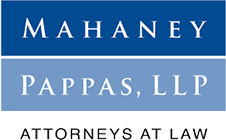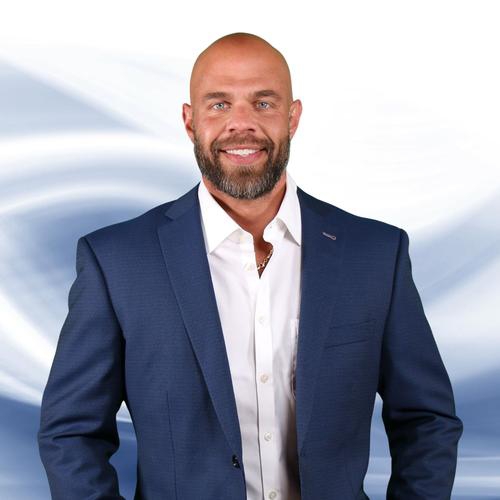 We get a lot of questions about outstanding medical bills that our injury clients incur due to their accident. There seems to be confusion about who pays for them and when they are paid. The confusion arises when the injured person receives medical bills in the mail that are due during the pendency of their personal injury claim. Here is a summary of how the outstanding medical bills are handled in conjunction with a personal injury claim.
We get a lot of questions about outstanding medical bills that our injury clients incur due to their accident. There seems to be confusion about who pays for them and when they are paid. The confusion arises when the injured person receives medical bills in the mail that are due during the pendency of their personal injury claim. Here is a summary of how the outstanding medical bills are handled in conjunction with a personal injury claim.
Personal Injury Protection (PIP) Benefits Will Pay Some Medical Bills
PIP stands for Personal Injury Protection and is a part of the standard automobile insurance policy. Anyone injured in a car accident in Massachusetts will have PIP benefits available from the insurance company that insures the vehicle they were occupying at the time of the crash. The benefits available from PIP are for the payment of medical bills and expenses. (PIP is also available for a percentage of an injured person’s lost wages if they are unable to work due to their injuries and the replacement services, but that is beyond the scope of this article). For each person injured in the vehicle, PIP will pay up to $8,000 in benefits for medical bills (or $2,000 in medical bills if you have private health insurance).
For example, if you were driving your car and injured in a T-bone car crash and were then transported to the emergency room by an ambulance, the PIP benefits from your auto insurance company should pay the ambulance bill and the emergency room bills.
After a car accident, you must notify your insurance company so they can send you an Application for PIP benefits. We see a lot of times that people never complete the application and the auto insurance company will then not pay the medical bills from PIP. The problem this causes is that the injured person’s health insurance will not pay the medical bills because if the injuries were suffered in a car crash they know that PIP should pay the first $8,000 or $2,000 of medical bills. So if PIP doesn’t pay because they haven’t received the application and the health insurance doesn’t pay because they are waiting for PIP to pay, the ambulance company and hospitals don’t just wait for their payments. They often send any unpaid medical bills to collections and this can impact your credit. So, make sure you protect yourself.
After PIP Is Exhausted, Medical Bills Should Be Submitted to Health Insurance
This is where some clients start to get confused. Once PIP pays either the full $8,000 or $2,000 toward medical bills they are said to have exhausted their benefits. It is at that time the medical bills get submitted to the injured person’s health insurance. The issue this causes is that there are typically co-pays, deductible or a balance due for the medical treatment. These costs are the responsibility of the injured person. But, wait, the logical thought is that the defendant caused the accident and injuries, shouldn’t he or his insurance company pay the medical bills. While this makes absolute sense, personal injury claims and cases are never that simple.
The medical bills are technically the responsibility of the injured person during the pendency of a personal injury claim. Once the injured person reaches a full recovery or a maximum medical improvement he or she will attempt to settle their claim with the other driver’s insurance company. Part of the demand for settlement is for the reimbursement of the medical bills that the injured party incurred as a result of treatment for the injuries caused by the other driver’s negligence. So, the other driver’s insurance company doesn’t pay the injured person’s medical bills, but, assuming everything goes right, they will reimburse the injured person for the medical costs and expenses of their treatment.
The problem is that medical bills pile up during treatment and no one wants to pay any bills for something they didn’t cause. The best way to approach the medical bills, however, is to deal with them up front. Here are a few tips on what to do with medical bills related to injuries suffered in a motor vehicle accident:
- Make sure they are submitted to your health insurance. For some reason, we see a lot of medical providers (i.e., emergency rooms physicians, radiology departments, etc…) that do not bill health insurance and send the total bill to the patient for payment. In some situations, the medical provider sent it on to the health insurer, but the health insurer did not know that PIP had exhausted and they declined payment. If you are getting a bill for treatment related to your injury claim, make sure you forward it to your health insurer or give the medical provider the health insurance information to bill.
- If you cannot pay the medical bill or balance due, let your lawyer know. In cases where our clients cannot afford to pay the outstanding medical bills, we always advise them to let us know. We can reach out to the medical offices and request that they not send the bill to collections. Most doctor’s offices and other medical providers will not send the bills to collections when they know a personal injury lawyer is involved and there is an open claim. The reasoning behind this is that they know they will get paid if and when the case settles.
- Make sure you notify your accident attorney about all the doctor’s offices, medical providers or physical therapists you treated with and if any of them are owed money. Unless you tell your lawyer about every medical provider you have seen, they will not be able to find out. First off, if your personal injury attorney doesn’t know where you treated, the medical bills will not be added into your personal injury case and will cause your claim to lose value. Also, if your lawyer doesn’t know where you treated and what bills are outstanding he or she will not be able to make sure they are paid.
Don’t Forget About Health Insurance Reimbursement
In cases where PIP is exhausted and additional medical bills are paid by the health insurance, they may have a right to be reimbursed for the medical bills it paid when you settle your personal injury claim. Mass Health, Medicare and ERISA plans have an absolute right to be reimbursed and auto insurance companies will not distribute settlement checks until the amount of reimbursement for Mass Health or Medicare has been obtained. In the case of private health insurance they usually send a letter to the injured person about their claim for reimbursement.
Most people have a hard time understanding why they need to pay back their health insurer. While it doesn’t sound right, the logic behind it is that if the health insurer paid medical bills for treatment and then the injured person is compensated for those medical bills from the other driver’s insurance company as part of the settlement, the health insurer should be reimbursed for the portion of the medical bills they actually paid.
Talk With an Experienced Personal Injury Lawyer Today
If you have been injured in a motor vehicle accident in Massachusetts and you have medical bills coming in the mail and piling up, you should consult with an experienced personal injury attorney. A lawyer can explain how medical bills are handled in personal injury cases and help address them to protect you.
We offer free initial meetings where we will review your case, answer your questions, and explain your rights and legal options. Feel free to call 508-879-3500, or contact us online.

